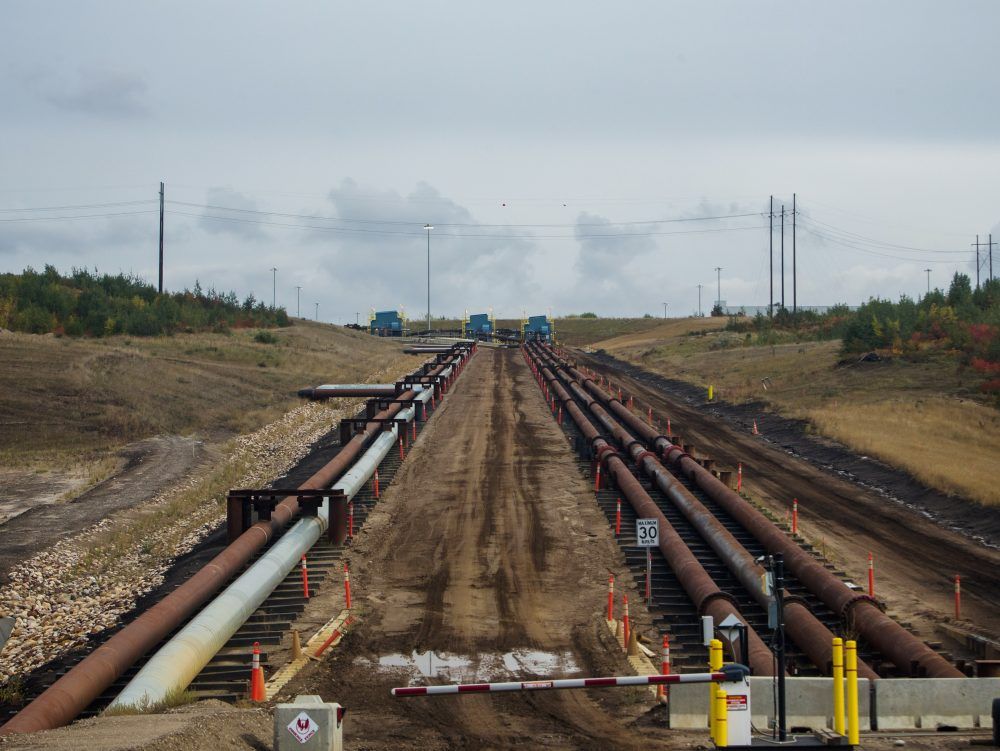Marc Lee: Plotting a course to net zero? Climate and energy policy in the 2019 election

Credit to Author: Stephen Snelgrove| Date: Sat, 19 Oct 2019 01:00:08 +0000
In the middle of the federal election campaign, Canadians hit the streets demanding climate action. Here’s a look at where the major parties stand.
The Liberals would reset Canada’s long-term greenhouse gas emission target to “net zero” by 2050, as would the Greens. The NDP would do essentially the same thing: science-based targets to keep the global temperature increase below 1.5 degrees Celsius.
“Net” is shorthand, meaning Canada would put emissions into the atmosphere in 2050, but as-yet-undeveloped technologies would take an equivalent amount of carbon from the air and put it safely underground.
The Liberal promise to plant two billion trees over 10 years is similar. There’s nothing wrong with planting trees, but this should not take the place of actually reducing emissions from fossil fuel production and consumption.
Getting to “net zero” is hard because of federal support for growth of the oil and gas industry, including purchasing the Trans Mountain Pipeline and taking over its expansion plan so that Alberta can get more oil to market.
Politicians cannot have it both ways: promising climate action while digging deeper into fossil fuels.
Indeed, we need to start planning for the wind down of fossil fuel industries. The Greens most clearly reject new fossil fuel infrastructure of any sort and would phase out oil and gas production in Canada, including the oilsands by 2035.
The NDP doesn’t comment on Trans Mountain expansion, but would allow provinces a veto over such projects in their jurisdiction. They also call for more domestic upgrading and refining of Canadian oil.
The federal government established a modestly rising floor price on carbon in provinces without carbon pricing. It is currently $20 per tonne — 4.3 cents per litre at the pump — rising annually to $50 per tonne in 2022. All revenues will flow back to households in the province where the tax is collected.
None of the Liberals, NDP or Greens propose to raise the federal carbon price floor in spite of tabling more ambitious emissions targets. The Conservatives, on the other hand, would kill the federal regime in favour of “green technology” and “emissions standards for major emitters,” but it is not clear what this means in practice.
A flipside of carbon pricing is eliminating fossil fuel subsidies as promised by the Greens and NDP. These subsidies include various incentives and tax breaks aimed at fossil fuel extraction as well as programs supporting innovation and environmental measures.
All major parties call for public support to make homes more energy efficient. The Liberals, NDP and Greens mostly differ on how quick and comprehensive such a program would be.
The Conservatives instead, more narrowly, propose a tax credit for home renovations for owners of single-family homes. A household would need to have sufficient taxable income to benefit from this tax credit.
Renters and those living in multi-unit buildings have largely been neglected by past energy efficiency programs. The NDP notably singles out retrofits for social housing across the country.
The Greens and the NDP would also require all new homes constructed after 2030 to meet net zero standards. This would mean high-efficiency housing design accompanied by renewables to offset year-round energy demand.
On transportation, the NDP and Greens support electrification of transportation. The Greens also propose to ban the sale of internal combustion engines in 2030.
Only the NDP promises substantial investments to expand public transit and would create permanent funding starting with $6.5 billion over four years and a commitment to work towards free public transit. The Conservatives would instead give public transit users a small break by reinstating a tax credit.
It is refreshing to see political parties talk about more aggressive climate action even if short on details. The people have spoken, but given a track record of governments establishing targets and timelines without the policy measures to achieve them, we need to see more ambitious, concrete action.
Marc Lee is a senior economist with the Canadian Centre for Policy Alternatives, B.C. Office.
Letters to the editor should be sent to sunletters@vancouversun.com.
CLICK HERE to report a typo.
Is there more to this story? We’d like to hear from you about this or any other stories you think we should know about. Email vantips@postmedia.com.